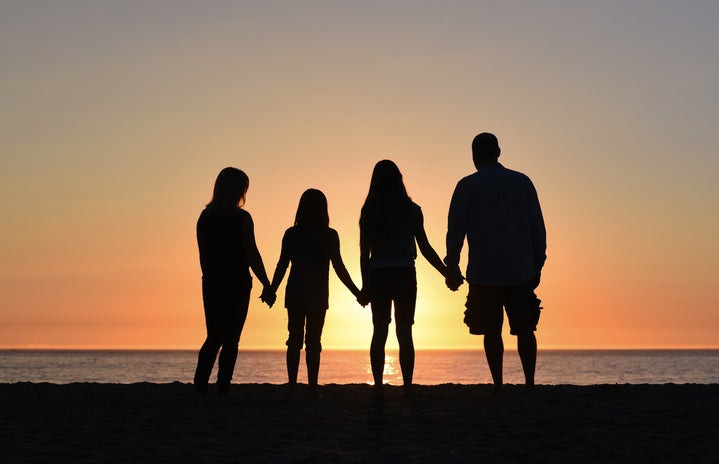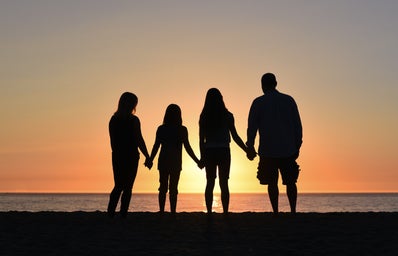After Pedro Scooby, a Brazilian surfer, participated in the 2022 edition of Big Brother Brasil, the limelight was put on his past relationship with Luana Piovani, with whom he had three children. However, even though they share custody of their children, they have continuously shown on social media their lack of communication and, especially, their lack of respect for each other by blasting their discussions for the whole world to see and thoroughly judge. Besides custody fights and disagreements over parenting choices (from what kind of movies they should be allowed to watch to which country they should live in), in the past month, a whole new discussion was initiated on social media since Luana shared that her oldest son, Dom, decided that he no longer wanted to live in his mother’s house in Portugal, and he would be moving back to Brazil to live with his father.
The decision, nonetheless, came as a surprise to many internauts, since Luana has always been open about the lack of support given by Scooby to take care of their three children: from not wanting to pay the correct amount of pension to not being interested in seeing his children from time to time. So, why would Dom want to leave and start living at his dad’s? This question goes far beyond Piovani and Scooby’s relationship, being a reality to many divorced mothers who are left to ‘hold down the fort’ while the father only comes in for the fun activities, leaving the woman to do the more tedious (and damaging) tasks and leading them to carry all parental responsibilities and, more often than not, creating a strain in the relationship with their children, since they are always the ones that are boring and make them do everything they hate, while dad is guaranteed fun.
Boring mother, cool father?
Boring mother, cool father: that is a pattern from which many families don’t know how to escape. “We often see gender roles assigning the mother the role of disciplinarian, while the father may be seen as more permissive. Fathers and mothers often adopt different parenting styles, that is, while a mother may have a more demanding, worried pattern, with greater limits and rules, some fathers may adopt a more negligent, relaxed, and even tolerant pattern”, explains Isabela Teixeira, women’s psychologist – whose TCC was focused on parental alienation. The professional further explains that these patriarchal roles often lead to children associating their mothers with authoritarian figures, while they see their fathers as the cool ones who allow them to be (and do) whatever they want.
In a brief passage through São Paulo, Luana opened up about the situation in the podcast PodDelas: “A mother’s heart is very tight, but everything in life is a process. I decided that he would come (to Brazil) at the beginning of last year. I felt like the worst mother in the world. I bled, and I died, but I came to understand that there is no point in insisting on a mistake. There’s no point in idealizing a child. Maybe his happiness is in his father’s house”, the mother shared. Although Dom has the right to choose with whom he desires to spend his time, it is impossible to not make associations with some of the severe accusations Luana had made on social media before, and reflect if the twelve-year-old has been impacted by the “Boring mother, cool father” ideology. One of Luana’s main points when criticizing Scooby’s parenting style was the fact that he would allow Dom to listen to heavy funk music and play violent video games, which eventually molded the child’s behavior.
“We cannot ignore that the time they both spend with their children also says a lot about the perceptions that they acquire. In other words, if the father has less time together and spends more time on weekends, where he can focus more on creating positive experiences, the child’s perception will be linked to that moment. While the mother may be more involved in everyday tasks that involve discipline, and this can reduce the fear of fun, consequently generating a perception more linked to responsibilities and rules”, explains the psychologist. This is further accentuated by the fact that Pedro is always dismissive of Luana’s criticism and, in a certain way, gaslights his followers into believing that she is somewhat of a crazy mother and feminist, which even more diminishes the amount of time his kids will want to spend with their mother.
And Dom’s decision isn’t the only example that we have seen recently of the effects of a father’s being absent from parental responsibilities. Recently, Kanye West revealed that his daughter, North West, had destroyed Kim Kardashian’s couches to let her go live with her father. However, closer followers from the Kardashian reality show pointed out that this mainly has to do with the fact that Kim is in charge of most of the parenting, from getting to school to educating them, while when they are at Kanye’s they get to live a more “free lifestyle”. The reality star has also been very open about her efforts to hide the problems the rapper has gotten into in the past couple of years to protect the pristine idealization that their children should have of their dad.
“The permissive parenting style may tend to have few clear expectations and be too tolerant of their children’s behaviors. So, they may be parents who avoid many conflicts and end up allowing the child too much freedom to choose, without much guidance or supervision. This can result in a lack of sense of responsibility in children, as they have freedom when thinking about the consequences, making them more likely not to consider the consequences of their choices”, Isabela further explains.
The lack of parental responsibility
The women’s psychologist even points out that, in many of her consults, she receives mothers worried about the lack of love they feel from their children and the obvious preference they show for their fathers: “Women end up being very self-critical and feel overwhelmed by having to balance work, family, self-care, finances, social relationships. And because of this overload, and due to the lack of self-care due to obstacles, they also have low self-esteem and difficulty maintaining a healthy sense of personal identity. Many report difficulties in communicating with the children”.
Although common in various households (maybe even in ours), the lack of parental responsibility is often associated with divorce, since the children tend to spend most of the time with their mothers rather than with their fathers, besides an inevitable alteration in visitation, dialogue and routine. Common challenges in parental responsibility are establishing discipline and limits and more affective and effective communication, intending to build a healthy relationship in the context of divorce, or an equal responsibility toward the children’s education.
“I see many parents facing difficulties in balancing parental responsibilities with other demands, for the most part, I see many women accepting “taking care of” different things and even giving up their responsibilities so as not to neglect child care. I hear complaints from these women about not perceiving the same availability or behavior from others. I mention something common that I have heard in the case of separation, a father who, on the days of caring for his children, asked his mother to change the day of care, so that he could fulfill an extra responsibility, and when this mother needs it, he is unable to behave as network, and ignores the woman’s collaborative behavior and says she did it because she wanted to”, Isabela reveals.
How does an equal effort in distributing parental responsibilities reflect on children’s behavior?
Parents are role models for their children, so when they demonstrate responsibility in their actions, they teach them about the need to take responsibility, example. When parents establish clear and consistent limits, they enable greater security and predictability, functional limits help children understand what is expected of them. All this closer relationship contributes to the good development of self-esteem and self-confidence in these children, in addition to teaching self-sufficiency skills throughout their lives, such as personal self-care, managing time, tasks, and decision-making.
Besides, when conflicts between parents become blatantly obvious to the child, it can affect their mental health, leading to possible guilt and lack of confidence in their relationship with others. “When we talk about parental responsibility and affection, this child may, for example, start to not believe in figures of affection. Children reflect what they hear, what they see, for example, and within a conflict, when we think about the modulation of behaviors, perception, depending on the context and exposure, you take away from this child the opportunity to build their analysis”, the psychologist finalizes.
————————–
The article above was edited by Clarissa Palácio.
Did you like this type of content? Check Her Campus Cásper Líbero’s home page for more!


